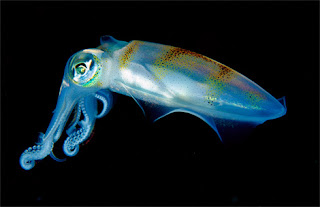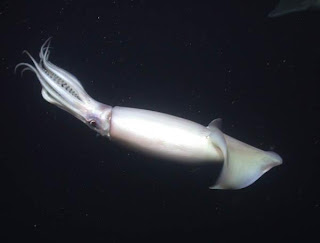With their torpedo-shaped bodies, powerful suckers, and acute senses, as well as their fitness to move or cover themselves with stupendous quickness, squid are among the most sophisticated of all ocean hunters.
Squid belong to the group of mollusks known as cephalopods, which also includes octopuses and cuttlefish. The word “cephalopod” means “head-foot.” In cephalopods, the muscular foot seen in most other mollusks has been modified into powerful, suckered tentacles that are attached to the front of the head.
Squid are only found in the sea. They have been in existence since the Cambrian Period, 500 million years ago, and were the dominant hunters in the early seas before the fish evolved. Squid are also distant relatives of snails and clams, but instead of being slow creepers or stationary burrowers, they have evolved into elegant swimmers and powerful predators.
Well-developed Nervous Systems
To have the capacity to swim speedy and chase effectively, squid need well-developed senses. The squid’s body is very sensitive to touch. There are also well-developed balance organs located in the head. The eyes of cephalopods are among the most advanced of all the invertebrates (animals without backbones). They form images, rather like our own eyes. The brain is relatively large for the size of the animal. The nervous system contains nerve fibers that pass nerve impulses rapidly to the muscles surrounding the mantle. The animal can swim well and escape quickly if necessary.










1 comments:
Awsome Pictures! :)
Post a Comment